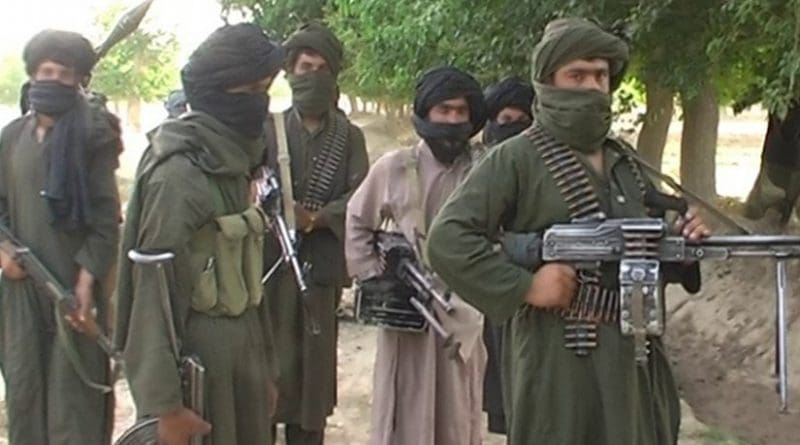There Are Reasons Why US Policy To Get Taliban Into Negotiations Has Failed – OpEd
By Arab News
US Secretary of State Hillary Clinton’s visits to Afghanistan and Pakistan have been presented as a move both to get the Afghan government talking again to the Taleban and reforge strained relations between Kabul, Islamabad and Washington.
She has a mountain to climb if she is to succeed.
In the case of the Taleban, contacts were broken following last month’s assassination of former President Burhanuddin Rabbani who was acting as interlocutor between the government and the insurgents. The Taleban have been blamed for the assassination and Afghanistan’s President Hamid Karzai says he no longer sees the point of talking to the Taleban because they are puppets in the hands of Pakistan’s intelligence services. The US concurs. Pakistan, of course, denies it.
Clinton is absolutely correct in her view that the Taleban cannot be ignored. They represent a major segment of Afghan society. Unfortunately, it is difficult to see the policy being pursued by Kabul and Washington to get them into negotiations being successful. It is all stick and no carrot. The notion of forcing someone to the negotiating table can work when that person accepts that they have been defeated. But the Taleban are not defeated — far from it. Simply threatening more stick, which is what she did in Kabul, is not going to break the Afghan cycle of violence. To entice the Taleban, there has to be far more carrot.
As for reconnecting with Pakistan, there is little reason for hope there, either. Relations have never been so poor. That the US sees Pakistan as the problem was made abundantly clear with Clinton’s comments about pushing Pakistan “very hard” and that “there can be no safe haven” there for those who kill Pakistanis and “who cross the border to kill people in Afghanistan.”
This sounds more like a threat than a hand of friendship. It is not going to go down well with a Pakistani public already deeply suspicious of Washington’s intentions and daily becoming more anti-American because drone attacks continue to kill innocent bystanders.
From Washington’s perspective — and Kabul’s — Islamabad has to be part of the solution to Afghanistan’s continuing conflict, as Clinton made clear over the past couple of days. There is a clock ticking. The US says it wants to keep to its plans of pulling all its forces out of Afghanistan by the end of 2014; the Afghan Army will then be in charge of the country’s security. The trouble is that at present, with the Taleban growing rather than being crushed, it does not look as if the Afghan Army is going to be up to the job.
Thus the desperation to get Pakistan on side — and it is desperation. This is far from the first time that Clinton has told Islamabad that it has to deal with the Taleban. She was saying exactly the same thing in Islamabad in May, her first visit after US special forces killed Osama Bin Laden in Abbottabad: Pakistan had to clamp down on the Taleban and Al-Qaeda and stop using them the country’s territory for their operations in Afghanistan. Likewise, for almost the past two years, she has been talking about the importance of a strategic relationship between the US and Pakistan.
It has not happened, and it does not look as if it is going to either. Islamabad cannot, or will not, play ball. That leaves a gaping hole in Washington’s Afghanistan plans.

